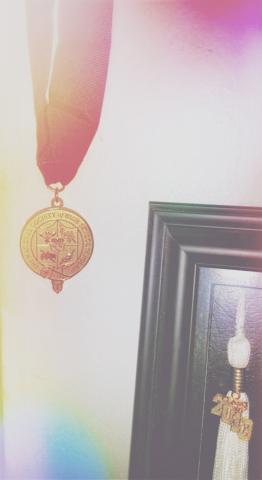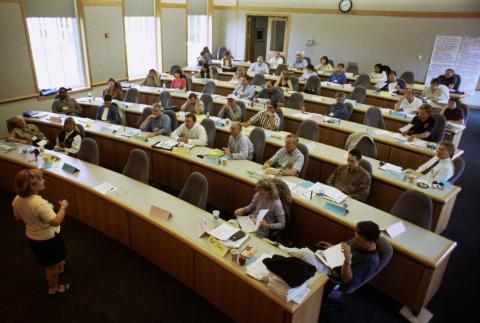Scholarship Interview Tips
Dec 17,2015
College is expensive. Accordingly, it's always a good choice to look into scholarships that will help cover tuition, books, food, etc. A majority of scholarships can be found online with simple or in-depth essays that need to be written just to obtain them. Some are even as simple as entering your name, email address, and school. However, extremely important scholarships require a lot more effort on your part. One of the most important aspects being, an interview. From firsthand experience, I can inform you that scholarships that are either going to cover a large amount of costs for your college of choice or all your costs, will more than likely require an interview. If you are new, nervous, or curious, here are some tips to help you through.
Look for Assistance
Interviews are important no matter if they are for a job or a school. It may be more helpful than you can imagine asking someone for assistance. An ideal approach is asking a peer with an immense amount of experience to conduct a fake interview. In this way, you can see what you are doing wrong, how you can become better, and your peer can guide you in mending your mistakes. This will aid in expanding your knowledge from simply answering yes or no questions to providing in-depth answers that will benefit your chance of obtaining the scholarship.
What to Wear
As of any interview, it is required to choose a professional outfit. For a scholarship interview, always go for an outfit that states, "choose me." For example, to stand out the most, there was a boy who went to the same scholarship interview as I did and to impress those who were going to interview him, he wore his ROTC uniform, displaying all the medals that he won to the crowd. Unfortunately, if, like me, you aren't in ROTC, you have to choose something else that would assist you in standing out. I chose an elegant but casual top that accented my pants. It was an outfit that stated, "I am a professional, hardworking student who also has a bit of creativity."
To choose this outfit, I was keeping the theme of the interview in mind. For this particular scholarship interview, it pertained more personally to the interviewee and how their personality will help the school standout creatively and professionally. This is an important aspect to stick with. If the scholarship interviewer is going for a creative approach be sure not to wear dull colors. Wear neutral or a small bit of brightening colors that displays just that. If they are aiming for both professionalism and creativity, have a bit of color to pop from the neutral colors.
What to Say/What Not to Say
As per the last comment I made about the interview, try to keep in mind what the overall theme appears to be. For some, it could pertain to the interviewee's personality like mine did, or for others, it is strictly professional. Either way, let this aspect help pave the way to what you specifically want to highlight about yourself.
Most people would give you the advice of selling a sad story. Unfortunately, that is an ongoing technique in the field on interviewing. Though it has worked (and still does) many of times, interviewers now want something more, so sell your strengths without completely making yourself look like a superhero. Start off by talking about your strengths but soon after explain what you want to work on (not what you need). Some interviewers may find the ‘need' word to mean you have a lot more improving to do. Though some may accept this, others will not, so tell what you would like to work on and how you would go about such.
Finally, the number one rule, never put a huge negative sign on your forehead. This specifically means, don't sell yourself short. While saying what you would like to work on, never mention, "but I can't do this." Even if it is not an area that they looking for in a candidate, it will immediately turn them off.
Go Along with the Story
When speaking to the interviewer, always keep in mind what they appear to be targeting when they are speaking to you. Sometimes, it may not be what you expect, however, you should always go along with the story. For example, when I went for my scholarship interview, the interviewer mentioned from my academics and achievements that I had an excellent skill in the field of creative writing. They'd passed over the honors and the good grades I received because that did not interest them at all. What caught their attention was that I'd written numerous short stories, poems, etc. As such, they asked me my emotional grasp I had to my writings, what inspired me, and how did I go about conducting them (this may be very useful for those interviewing for a creative writing scholarship). I had to work with what they asked me. On account of these professionals seeing numerous students with high grades and honoring achievements, it did not phase them. Instead, they wanted a deeper feel of the student they were talking to.
No matter what overall theme your scholarship interview appears to be heading, that aspect is important as well. The interviewer always wants to observe the candidate's personality and they will find questions to ask in order to show them just that. Thus, always watch what you say when you are in a scholarship interview. A simple word can break you from it or make the interviewers feel that you are the one. Yes, it is like many job interviews. They want to know who this person is they are going to be paying, but just keep in mind that this is for school and schools are very particular when it comes to giving out money to students. Hard work and standing out can put you on the scholarship but anything simple can take you off.





